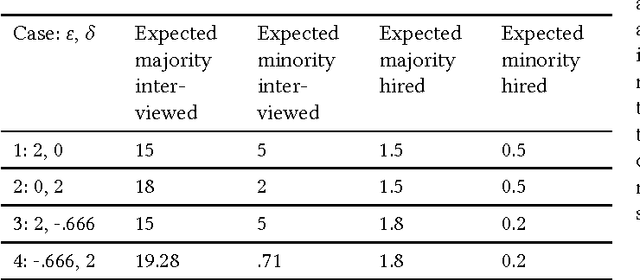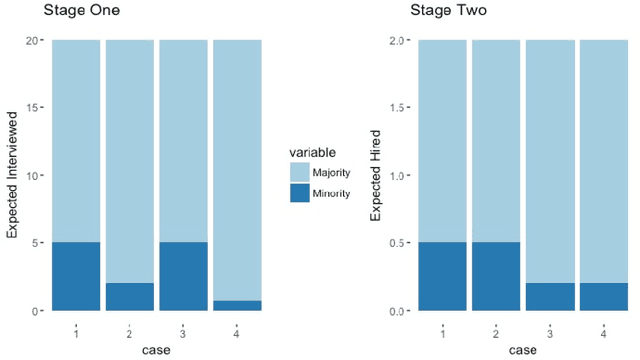Sarah N. Kitchen
Fair Pipelines
Jul 03, 2017

Abstract:This work facilitates ensuring fairness of machine learning in the real world by decoupling fairness considerations in compound decisions. In particular, this work studies how fairness propagates through a compound decision-making processes, which we call a pipeline. Prior work in algorithmic fairness only focuses on fairness with respect to one decision. However, many decision-making processes require more than one decision. For instance, hiring is at least a two stage model: deciding who to interview from the applicant pool and then deciding who to hire from the interview pool. Perhaps surprisingly, we show that the composition of fair components may not guarantee a fair pipeline under a $(1+\varepsilon)$-equal opportunity definition of fair. However, we identify circumstances that do provide that guarantee. We also propose numerous directions for future work on more general compound machine learning decisions.
 Add to Chrome
Add to Chrome Add to Firefox
Add to Firefox Add to Edge
Add to Edge